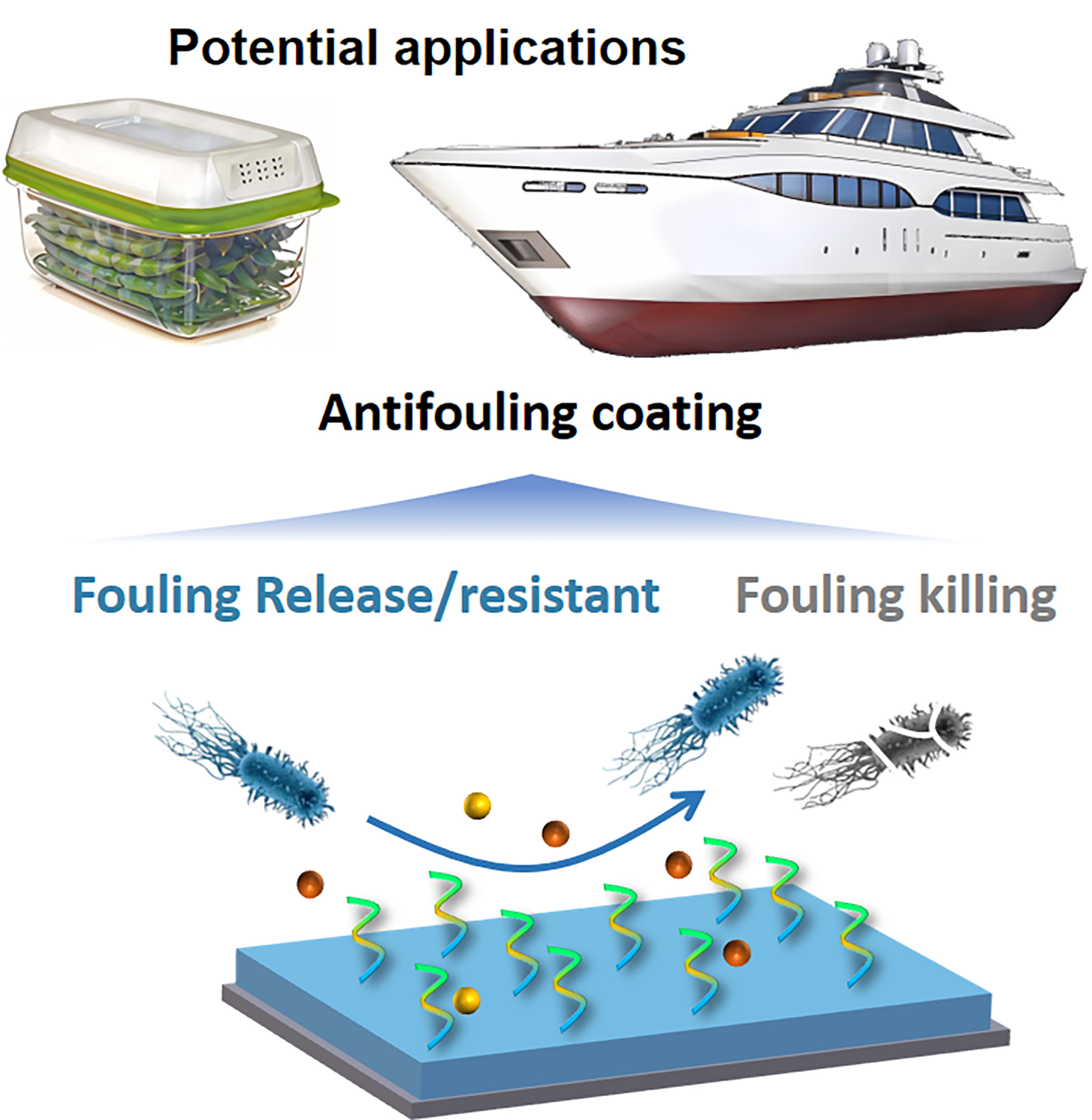A research team at the Ningbo Institute of Materials Technology and Engineering (NIMTE) of the Chinese Academy of Sciences has developed a novel degradable silicone-hydrogel coating, delivering impressive synergistic anti-biofouling performance for marine applications. The study was published in Small.
Marine engineering equipment and underwater infrastructure face severe challenges from microbial fouling, which leads to performance degradation, increased maintenance costs, and potential safety hazards.
Traditional antifouling technologies involve highly toxic biocides, often triggering severe ecological pollution. Current eco-friendly alternatives, such as hydrogels and silicones, still struggle with poor antifouling efficiency and limited durability.
To address this issue, the researchers combined a facile sol-gel method with Schiff base chemistry, achieving selective copolymerization of hydrophilic monomers, flexible hydrophobic monomers, antimicrobial monomers, and degradable monomers.
The developed silicone-hydrogel hybrid antifouling coating enables a four-dimensional protection mechanism, including fouling release, resistance, killing, and self-renewing surface. Besides, it demonstrated controlled degradability and outstanding flexibility with a hardness of 0.135.
The optimized coating has achieved exceptional bactericidal efficacy with a bacterial eradication efficiency of 98.8% and an anti-adhesion rate of 99.8%.
"Relevant tests confirm this innovative coating combines both high efficiency and exceptional longevity in marine biofouling," said Dr. YAN Minglong, first author of the study. "The 5.5-year theoretical lifespan at 200 μm thickness marks a major advancement over existing solutions."
This novel prevention paradigm provides critical technical support for the sustainable evolution of marine equipment and medical devices.

The silicone-hydrogel coating with impressive synergistic anti-biofouling performance. (Image by NIMTE)






